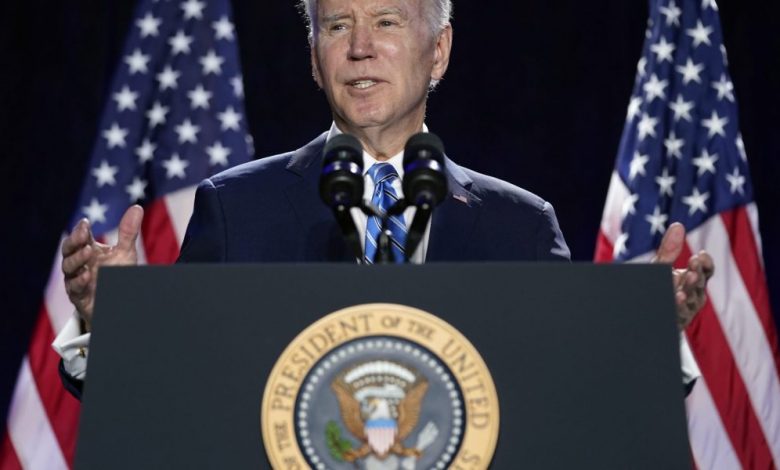Biden is asking for $1.6 billion to clear up COVID aid scam

President Joe Biden’s administration is asking Congress to authorize more than $1.6 billion to clean up the mess of fraud against the government’s massive aid programs for the coronavirus pandemic.
In a strategy announced Thursday, the government called for money and more time to pursue cases, create new ways to prevent identity theft and help people whose identities have been stolen.
Speaking to reporters, America’s White House bailout coordinator Gene Sperling expressed hope that Congress, including the GOP-controlled House that is often hostile to the Democratic government, would view the spending as an investment.
“It’s just so clear and the evidence is so strong that a dollar spent wisely here returns to taxpayers or saves at least $10,” Sperling said, pointing to recoveries that have already been made. The US Secret Service recovered $286 million sent fraudulently through the Small Business Administration last year.
Sperling said the request is part of the budget proposal Biden is scheduled to present on March 9 — but most of it will be separate from the year-long appropriation request. Details would have to be clarified with Congress.
Shortly after parts of the US economy shut down after the coronavirus hit the country in 2020, Congress began authorizing massive relief measures to help affected governments, businesses and individuals. Relief efforts — some signed by Biden and others by his predecessor Donald Trump — totaled nearly $6 trillion. That’s more than the government spent annually before the pandemic.
The money has been used to boost unemployment insurance programs, help those in the gig economy who have lost their jobs, pay for government costs and keep businesses afloat.
“Overall, these programs have done tremendously well,” said Sperling. “There have also been instances where guard rails have been unnecessarily lowered, leading to unnecessary and massive fraud.”
A congressional committee found financial technology companies were not properly screening applicants for the massive Paycheck Protection Program. Fraudulent jobless claims overwhelmed state computer systems, which sometimes struggled to identify the fake claims, while many legitimate filings were slowed. The Department of Labor estimated $164 billion in improper unemployment insurance payments alone — much of it to scammers
Many of the scams relied on fake or stolen personal information.
Biden’s plans aim to address law enforcement and prevention. He is asking for $600 million for law enforcement, including funds to create at least 10 new Justice Department task forces in addition to the three that already exist to prosecute criminal syndicates and other fraudsters. He also calls for the statute of limitations for such crimes to be increased from the current five to ten years, to give more time to investigate and prosecute cases.
And he’s calling for policy changes to ensure the Labor Department’s inspector general’s office has ongoing access to data showing where the same identity was used to apply for benefits across states. That office and other IG offices would share at least $300 million to hire investigators.
Biden also plans to eventually issue an executive order directing federal agencies on how to address identity fraud, including modernizing government systems to prevent identity theft.
Some of the money would go toward improving the Federal Trade Commission’s website, IdentityTheft.gov, a place for people to report identity theft and get help.
The proposal also notes that $1.6 billion from the American Rescue Plan — the last of the major relief efforts passed in 2021 — will be made available through June to help states improve their efforts to combat identity theft to improve.
Learn how to navigate and build trust in your organization with The Trust Factor, a weekly newsletter exploring what leaders need to succeed. Login here.



